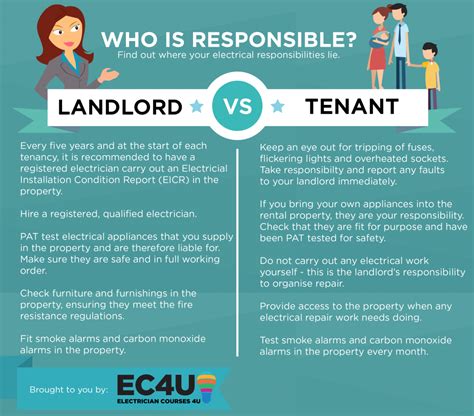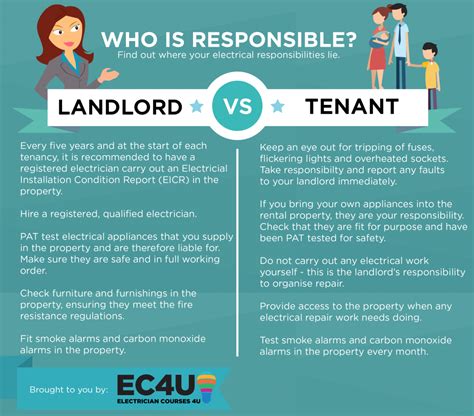can a renter be charged for electrical box installation Revenue-grade power meters installed at each tenant location make billing easy. With a submeter, landlords can charge each tenant for their exact energy consumption during that billing period instead of making a manual, time . Just gently tap fire 2 times on deposit boxes and exteriors of ATMs, 5 times on metal doors. Don't waste blades on wooden doors, just shoot the doorknob in, and carry as .
0 · tenant responsibility for electrical outlet
1 · renters responsibility for electrical repair
2 · renters responsibility for electrical problems
3 · renters electrical system
4 · rent prep electrical problems
5 · landlord electrical problems
6 · electrical repairs for renters
7 · electrical problems in rental homes
What Does a CNC Machine Operator Do? A CNC Machine Operator works in the manufacturing industry where they handle Computer Numerical Control (CNC) machines, which are used to cut, shape and form products.
Should the tenant exceed standard maintenance then he can be charged by the landlord to have it professionally inspected. In practice, state and local laws enforce upgrades when a performed repair is extensive enough to be considered a renovation or new installation . In most cases, tenants can end the lease or sue the landlord for an injunction or monetary damages. Many states also let tenants do repairs themselves and deduct from rent. .
In a residential rental situation, it is virtually impossible for the landlord to shift responsibility for major "mechanical" issues in a home, such as inadequate electrical, to the tenant.Revenue-grade power meters installed at each tenant location make billing easy. With a submeter, landlords can charge each tenant for their exact energy consumption during that billing period instead of making a manual, time .
Probably not. The answer depends upon how your lease or rental agreement is worded. Generally speaking, any change in the terms of your tenancy (if month to month) . However, a landlord is not responsible for electrical outlet problems caused by the tenant or the tenant's children or guests. An example of improper use is to overload an outlet or insert foreign objects inside, causing a .
As a landlord, you have a legal duty to perform necessary repairs and maintenance for occupancy. This includes major repairs. Minor repairs, including replacing light bulbs and general upkeep, are often part of the . If payment has been accepted for rent (and/or a written or oral lease exists), a renter has inherent rights under landlord tenant law. These rights vary by state but always .
In most states, landlords must repair or replace any appliances supplied with rental property. However, in some states landlords only have a duty to fix things they legally have a .
Should the tenant exceed standard maintenance then he can be charged by the landlord to have it professionally inspected. In practice, state and local laws enforce upgrades when a performed repair is extensive enough to be considered a renovation or new installation . In most cases, tenants can end the lease or sue the landlord for an injunction or monetary damages. Many states also let tenants do repairs themselves and deduct from rent. In a few places, tenants can even withhold rent. Most electric repairs should be done by a licensed, trained professional. However, because electricians are expensive, landlords and tenants often argue on who gets to pay the bill for the repair.In a residential rental situation, it is virtually impossible for the landlord to shift responsibility for major "mechanical" issues in a home, such as inadequate electrical, to the tenant.
Revenue-grade power meters installed at each tenant location make billing easy. With a submeter, landlords can charge each tenant for their exact energy consumption during that billing period instead of making a manual, time-consuming estimate.

outdoor electric meter box
tenant responsibility for electrical outlet

Probably not. The answer depends upon how your lease or rental agreement is worded. Generally speaking, any change in the terms of your tenancy (if month to month) require a 30 day written notice. Any change in the terms of a fixed term lease require mutual consent by both the landlord and the tenant. However, a landlord is not responsible for electrical outlet problems caused by the tenant or the tenant's children or guests. An example of improper use is to overload an outlet or insert foreign objects inside, causing a short circuit.
As a landlord, you have a legal duty to perform necessary repairs and maintenance for occupancy. This includes major repairs. Minor repairs, including replacing light bulbs and general upkeep, are often part of the tenant's responsibility. Busy or frugal landlords may be tempted to let repairs slide. If payment has been accepted for rent (and/or a written or oral lease exists), a renter has inherent rights under landlord tenant law. These rights vary by state but always include the tenant’s right to a habitable premises, due process before an eviction and more. In most states, landlords must repair or replace any appliances supplied with rental property. However, in some states landlords only have a duty to fix things they legally have a duty to provide. In either case, when a landlord hasn’t provided the problem refrigerator, stove, or other specific appliance, there’s usually no duty to repair.
Should the tenant exceed standard maintenance then he can be charged by the landlord to have it professionally inspected. In practice, state and local laws enforce upgrades when a performed repair is extensive enough to be considered a renovation or new installation .
In most cases, tenants can end the lease or sue the landlord for an injunction or monetary damages. Many states also let tenants do repairs themselves and deduct from rent. In a few places, tenants can even withhold rent. Most electric repairs should be done by a licensed, trained professional. However, because electricians are expensive, landlords and tenants often argue on who gets to pay the bill for the repair.In a residential rental situation, it is virtually impossible for the landlord to shift responsibility for major "mechanical" issues in a home, such as inadequate electrical, to the tenant.
Revenue-grade power meters installed at each tenant location make billing easy. With a submeter, landlords can charge each tenant for their exact energy consumption during that billing period instead of making a manual, time-consuming estimate. Probably not. The answer depends upon how your lease or rental agreement is worded. Generally speaking, any change in the terms of your tenancy (if month to month) require a 30 day written notice. Any change in the terms of a fixed term lease require mutual consent by both the landlord and the tenant.
However, a landlord is not responsible for electrical outlet problems caused by the tenant or the tenant's children or guests. An example of improper use is to overload an outlet or insert foreign objects inside, causing a short circuit.
As a landlord, you have a legal duty to perform necessary repairs and maintenance for occupancy. This includes major repairs. Minor repairs, including replacing light bulbs and general upkeep, are often part of the tenant's responsibility. Busy or frugal landlords may be tempted to let repairs slide. If payment has been accepted for rent (and/or a written or oral lease exists), a renter has inherent rights under landlord tenant law. These rights vary by state but always include the tenant’s right to a habitable premises, due process before an eviction and more.
renters responsibility for electrical repair
out door waterproof junction box

Whether you're a seasoned professional or a DIY enthusiast, always prioritize understanding and using the sheet metal gauge chart. The success of your project might very well hinge on it. Use our millimeters to inches conversion chart to stay informed!
can a renter be charged for electrical box installation|electrical problems in rental homes